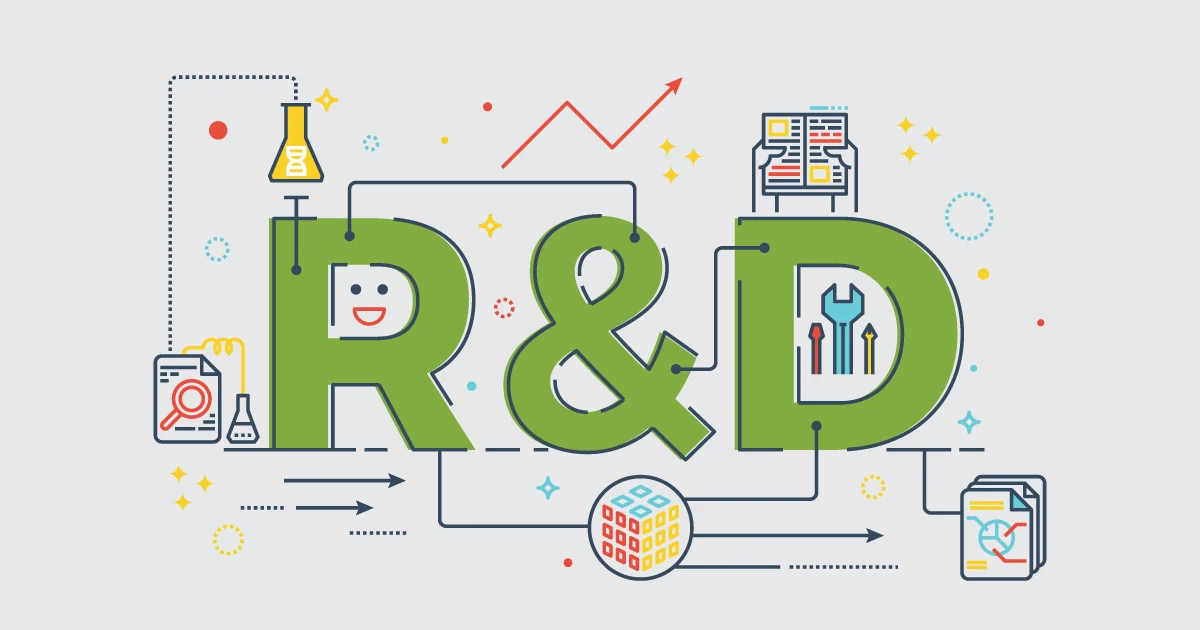R&D Tax Credits: Why HR Should Be Paying Attention
1/11/2024
When it comes to R&D tax credits, many companies rely on their finance or tax departments to manage the process. However, HR teams can play a pivotal role in unlocking these financial incentives, especially for small- and medium-sized businesses (SMBs). R&D tax credits are often misunderstood as exclusive to large corporations, but any business investing in innovation—whether improving products, processes, or internal systems—may qualify.
In this article, we’ll explore what HR professionals need to know about R&D tax credits and how they can help their companies reduce payroll taxes and reinvest in business growth.

What Are R&D Tax Credits?
The federal R&D tax credit was designed to encourage businesses to invest more in research and development. These credits provide a dollar-for-dollar reduction in a company’s tax bill, making them a powerful tool for businesses looking to reinvest in growth. For smaller businesses, the Protecting Americans from Tax Hikes (PATH) Act allows these credits to offset payroll taxes, a significant advantage for companies that don’t pay significant income taxes.
Why HR Should Care About R&D Tax Credits
HR teams might not traditionally handle tax matters, but their perspective can add value. Here’s why:
- Understanding Innovation Beyond the Lab: R&D isn’t just about scientific research—it includes developing or improving products, processes, and even employee training methods. HR oversees many of these initiatives, making them crucial in identifying R&D activities that qualify for tax credits.
- Collaborating on Payroll Tax Reductions: Companies can apply R&D tax to payroll taxes, resulting in cost savings. HR can coordinate with finance to ensure these savings benefit payroll outsourcing services or workforce development initiatives.
- Supporting Workforce Innovation: HR manages learning and development programs that may qualify for R&D credits if they aim to improve internal processes.
How the Federal R&D Tax Credit Works
The federal R&D tax credit offers a reduction in tax liability based on qualified expenses, which include costs related to products, processes, software, and techniques. By completing Form 6765, businesses can claim these credits and carry them forward for up to 20 years, providing flexibility in tax planning.

How HR Can Help Identify Qualifying R&D Activities
HR professionals can be instrumental in identifying qualifying R&D activities, including:
- Product and Process Improvements: Innovations like new HR software or automated workflows could qualify for R&D credits.
- Software Development and Training Programs: Managing workforce management or employee development platforms could be eligible for tax credits, given the significant resources involved.
- Collaboration with R&D and Finance Teams: HR should work closely with other departments to document qualifying activities and ensure all eligible costs are captured for R&D credit claims. Proper coordination between HR and payroll services can maximize the benefits.
Who Qualifies for the R&D Tax Credit?
Many companies, regardless of size, can qualify for R&D credits. Examples include small businesses that develop new internal software or improve technical processes, proving that these credits aren’t just for tech giants. Even companies involved in staffing solutions or payroll services can benefit if they are investing in process improvements or innovative services.
State R&D Tax Credits: An Additional Opportunity
Several states offer R&D tax credits in addition to federal incentives. HR should collaborate with finance teams to explore these opportunities and maximize tax savings for businesses, including those using payroll outsourcing or staffing services.
The Future of Innovation and HR’s Role
As businesses adapt to a changing workforce, HR can lead the charge on innovation. Economic challenges mean companies must operate smarter, and R&D tax credits provide a tool to innovate, upskill, and prepare for the future.

NIC Global’s Expertise in Leveraging R&D Tax Credits
At NIC Global, we help businesses maximize their R&D tax credits by identifying qualifying activities and ensuring proper documentation. We work with HR and finance teams to help businesses unlock tax savings while fostering growth. Whether you’re focusing on staffing solutions or payroll management, we ensure you can make the most of available credits.
Is your company leaving money on the table? Reach out to NIC Global to explore how we can help you leverage R&D tax credits and fuel your business’s innovation and success.
For contact and support:
Facebook: NIC Global – Human Resource Solutions
Linkedin: NIC Global Sourcing JSC
Website: www.nicvn.com
Email: info@nicvn.com
Hotline: 0981.23.43.76
Address:
- Hanoi Office: No. 3A Thi Sach, Pham Dinh Ho Ward, Hai Ba Trung District, Hanoi, Vietnam
- Ho Chi Minh City Office: Dakao Center Building, 35 Mac Dinh Chi, District 1, Ho Chi Minh City, Vietnam
See more:
Payroll service
Staffing service
EOR service





